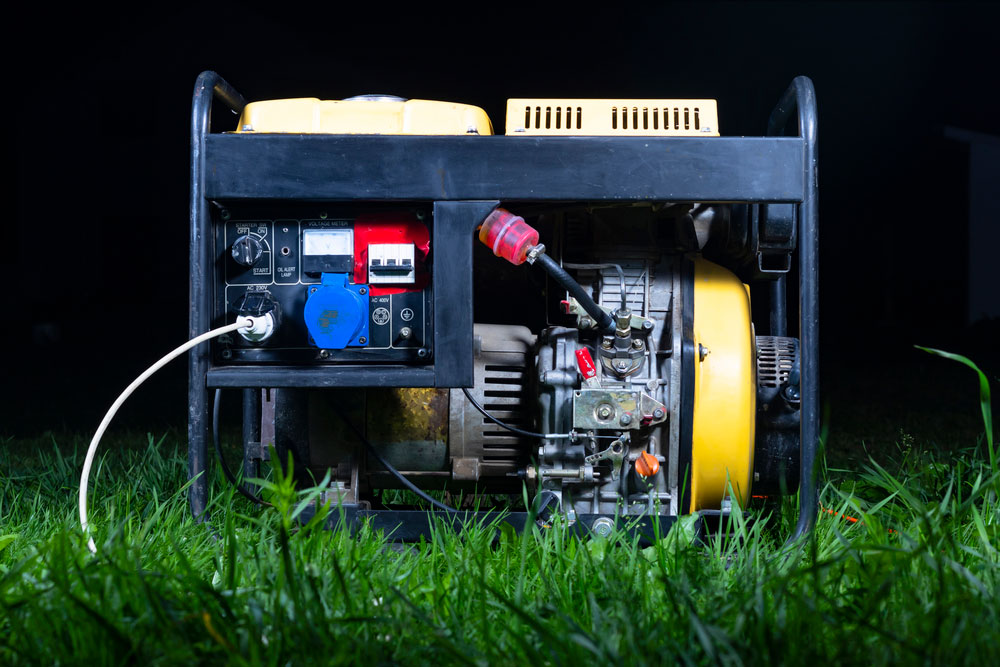One of the most important things to consider while you’re finding a generator for your home or place of business is the type of fuel it needs to run. Most people believe that all fuel types are the same or that it doesn’t even matter, but it isn’t true. Fuel types can vary significantly in terms of price and availability. They will also have different storage requirements, which is especially important if you’re running a generator.
When it comes to fueling generators, diesel, gasoline, and propane are among the most common fuel types. There is no “universal fuel” for every single generator, but each one has its own set of advantages (as well as their drawbacks). Knowing this will help you to determine which type of generator works best for you.
Pros and Cons of Diesel
Diesel is one of the most common fuel types, and it’s one of the most popular. In fact, diesel generators are often used for facilities that run high KW appliances (such as commercial businesses) and for locations that need to have a steady supply of power to stay operational during emergency situations (such as hospitals and 911 call centers).
Here are some of the advantages of diesel fuel:
- Diesel is an easy fuel source to find.
- Diesel generators are the most suitable for long-term use.
- Diesel generators are the least expensive to operate and maintain over the long term.
- Diesel is the least flammable of all the other fuel types, so it can be stored on site for quick and easy fueling.
Some of the disadvantages of diesel fuel include:
- Diesel has a shelf life between 18 and 24 months.
- Diesel generators produce more engine noise than all the others.
- Diesel isn’t as effective in cold temperatures, so it has to be used in combination with another fuel source to power generators in colder climates.
Be sure to speak to a professional for more information.
Pros and Cons of Gasoline
As a fuel source, gasoline is the easiest to find. As long as they produce less than 150 KW of power, it’s suitable for most generators. They’re commonly used by people who need residential backup generators, but the issues of safety and affordability are among the most important when it comes to gasoline usage (especially when you compare it to other fuel types).
Here are some of the benefits of using gasoline as a fuel source for generators:
- Gasoline is the easiest fuel source to find.
- Gasoline generators have a simple fueling process.
- Gasoline is the most suitable fuel source for portable and smaller standby generators.
Some of the drawbacks of gasoline as a fuel source include:
- Gasoline has a shelf life of only 12 months.
- Gasoline is extremely flammable, which makes it a safety hazard for on-site storage.
- Gasoline is expensive, and the demand for it always goes up during an emergency.
- Gasoline is the least suitable fuel source for cold weather conditions compared to other fuel sources.
Be sure to talk to a professional for more information.

Pros and Cons of Propane
Because of the cost and complexity of storing it, propane isn’t used for commercial or industrial purposes. But it’s a great fuel source for smaller generators that are used to power any necessary appliances at home during a power outage. Some other advantages of using propane as a fuel source for generators include:
- Propane generators produce very little engine noise.
- Propane is a clean-burning and emissions-compliant fuel source.
- Propane has a limitless shelf life, so it’s easy to store on-site for refueling.
Here are some of the disadvantages of using propane:
- Propane generators have a complicated fuel system.
- Propane storage containers are pressurized and highly flammable.
- The installation and maintenance of propane generators are expensive.
- Propane generators have a high consumption rate and a short life expectancy.
Be sure to reach out to a professional for more information.
Final Thoughts
All these fuel types have their own uses, benefits, and risks when it comes to their use in residential or commercial backup generators. Not all of them are suitable for large-scale operations (such as commercial and industrial businesses), each of these fuel sources can be used to create backup power for your home (as long as you follow all of the specific safety requirements).
If you’re looking for one of the best places to purchase backup generators in Corpus Christi, be sure to reach out to Solar Power Integrator. We would be happy to speak with you about your specific needs!
